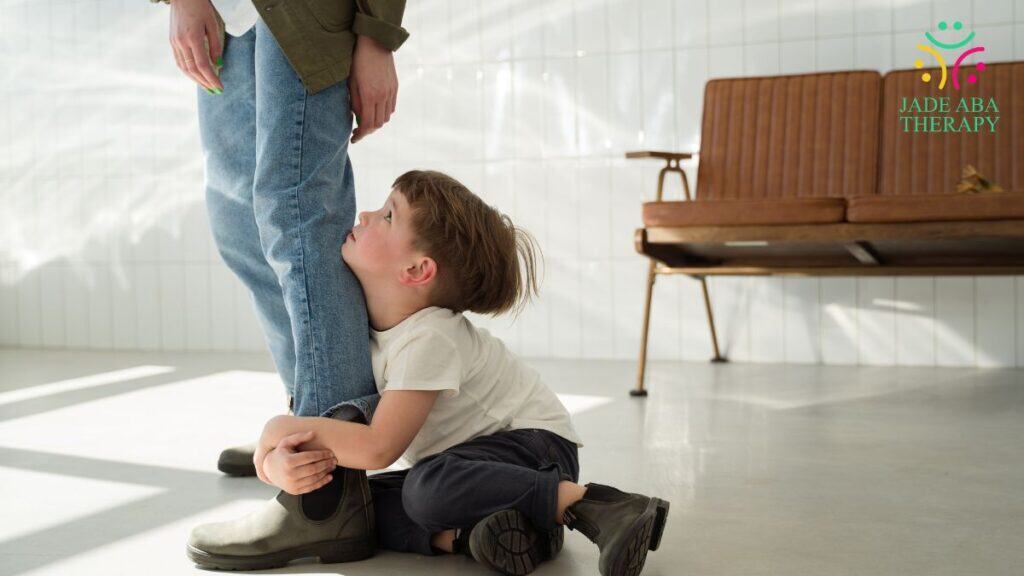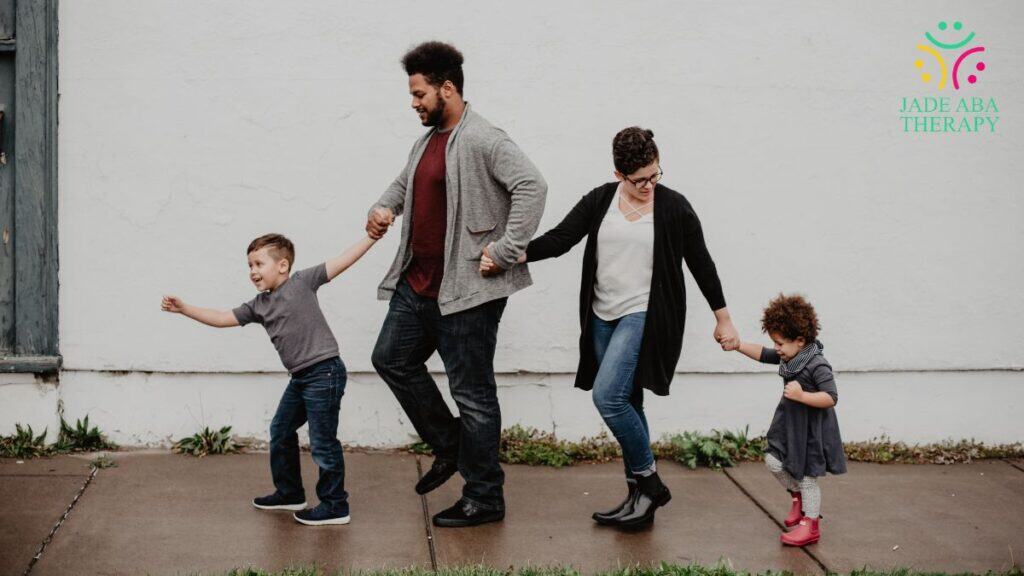Key Points:
- In-home ABA therapy in Virginia fits family routines, avoids traffic, and helps kids learn where behavior happens.
- BCBA sets goals based on home life, not clinic rules, and Medicaid and private plans with autism mandates fund care.
- Parents stay involved without commuting, while therapy adapts to daily life.
Many Virginia parents want ABA to happen at home because mornings are rushed, traffic in Northern Virginia and the Richmond corridor is heavy, and younger kids do better in familiar rooms. In-home ABA therapy in Virginia lets the BCBA design targets based on real routines, real rules, and real behavior.
Parents who understand how Virginia insurance works, what a first day looks like, and where providers actually travel can start services faster.

Why In-Home ABA Therapy Is a Strong Fit for Virginia Families
In-home ABA therapy Virginia works because sessions are matched to household routines. Kids practice communication, play, and behavior skills where they will use them. Families in NOVA, Richmond, and Hampton Roads juggle long commutes, mixed insurance, and school schedules, so a home model keeps attendance steady.
ABA therapy information for parents should show what problems it can reduce at home:
- Daily behavior: Improve transitions to car seats, meals, baths, or bedtime.
- Communication: Build relationships so frustration behaviors go down.
- Caregiver coaching: Show parents what to do between visits so progress continues.
A recent CDC update shows autism now being identified in about 1 in 31 children in the U.S., which increases demand for Virginia autism support and puts pressure on families to pick delivery models that do not add more travel.
In-Home ABA Therapy Virginia: How It Actually Works
Home-based autism therapy still follows the standard ABA process. A BCBA completes a behavioral assessment in ABA and writes a plan, and a trained therapist runs programs in the home. The difference is that the goals are written from what the BCBA sees in your house, not from a generic clinic setup.
A typical home plan in Virginia can include:
- Communication targets: Asking for snacks, help, toys, or breaks.
- Behavior reduction plans: Responding to tantrums or aggression in the exact way the BCBA taught.
- Daily living tasks: Dressing, toileting, or table activities.
- Parent training blocks: Parents learn responses and then practice on their own, following clear ABA parent training goals.
ABA therapy parents guide and resources often remind caregivers that progress depends on consistent attendance and parent follow-through. Home sessions make that easier because the family does not have to drive to another county.
What to Expect on Day 1 of Home Sessions
Day 1 should feel organized and low pressure. Parents in Virginia want to know who is coming to the house, how long they will stay, and whether the child will be pushed too hard. A good provider will explain this before arrival.
Expect the first visit to include:
- Quick home tour: The therapist looks at where the child plays, where problem behaviors happen, and where materials can be stored.
- Relationship building: The therapist spends time pairing with the child through play and preferred items so instructions are accepted later.
- Plan review with caregiver: The therapist or BCBA explains behavior strategies, reinforcement, and how to respond if behavior happens that day.
- Short practice: The therapist may run a few easy programs to see how the child responds in the home.
Parents can help by having:
- A quiet area ready for table tasks
- A list of preferred toys or snacks
- School or diagnostic paperwork nearby in case the therapist needs to confirm goals
How Virginia’s Autism Mandate and Medicaid Help Pay for ABA
Virginia has an autism insurance mandate that requires many state-regulated health plans to cover applied behavior analysis for children with autism. This is similar to broader ABA therapy and insurance requirements, which are up to $35,000 per year, unless the plan chooses to go higher. That annual amount matters because ABA is a high-frequency service and parents need to pace authorizations.
Key points for Virginia families:
- State-regulated plans: These are the ones the mandate applies to, so parents should confirm if their plan is regulated by Virginia.
- ABA coverage cap: Many plans apply the $35,000 ABA cap per year.
- Age ranges: Most Virginia autism support laws focus on children, so parents should verify the child’s age with the plan.
- Service authorization: Plans want a diagnosis of autism, an ABA treatment plan, and proof that care is medically necessary.
Virginia Medicaid also covers ABA for members under 21 when all required documents are submitted. That includes the assessment, treatment plan, and service authorization forms listed by DMAS. This is useful for families whose private plan does not cover ABA or reaches the annual cap too fast.

What Problems Does In-Home ABA Solve That Clinic Care Sometimes Misses?
Home-based ABA therapy is strong when the main issues happen in the house and not in public. Virginia parents often report the same three problems:
- Tantrums around routines
- Aggression toward siblings
- Running away from tasks or rooms is often tied to escape behavior in ABA
Home sessions let the BCBA test strategies in real time. For example:
- Morning routine shaping: Practice dressing and teeth brushing at the actual time it happens.
- Mealtime behavior: Teach “first/then” and requesting at the family table, not a clinic desk.
- Homework and device time: Set up visual schedules for after school.
ABA therapy information for parents should also link this to caregiver training. When parents learn the same responses that the therapist is using, the behavior plan stays consistent even when the therapist is not present.
Service Areas We Cover in Virginia
We offer in-home ABA services at Jade ABA, with teams traveling to families to keep therapy in the child’s natural environment. This often includes parts of Northern Virginia, Richmond, and nearby communities such as Virginia Beach, where there are active staff and supervisors available to come to the house.
Because home services depend on where BCBAs and RBTs are based, families should ask:
- Is my city inside the current service radius?
- Which days are available for in-home appointments?
- Can parent training be done virtually if we are slightly outside the area?

Frequently Asked Questions
How old does my child need to be to start in-home ABA in Virginia?
Children in Virginia can start in-home ABA as soon as they receive an autism diagnosis and a medical necessity recommendation. Medicaid covers ABA for members under 21. Private plans often focus on younger children. Early authorizations and familiar home settings support better engagement and faster progress.
What if my private plan says ABA is capped for the year?
ABA coverage in Virginia under state-regulated private plans includes an annual cap. If your child reaches this cap, providers may reduce service hours until the benefit year renews. Virginia Medicaid may provide secondary coverage if eligible. Additional hours beyond the cap require written approval from the insurance plan.
Can both parents join the home session?
Both parents can join home ABA sessions. Shared observation of prompting, reinforcement, and behavior responses helps maintain consistent messaging. Home sessions allow both caregivers to participate without commuting or altering work schedules.
Start In-Home ABA Therapy for Your Child
In-home ABA therapy in Virginia works well because families are busy, traffic slows clinic visits, and kids learn fastest in the rooms where they live. The state’s autism mandate and Medicaid structure give parents a starting point for funding, especially when they pace services to stay within the yearly ABA cap.
At Jade ABA Therapy, we deliver in-home ABA therapy for children with autism so families can focus on skills that make daily routines calmer. Our team uses assessments, caregiver training, and ongoing data to shape plans that match what your child needs at home, at school, and in the community.
If you need an ABA program that actually comes to your house and understands Virginia insurance rules, reach out to schedule an intake and confirm that your area is inside our current service radius. Once eligibility and coverage are set, therapy can begin in the setting where your child feels safest.




